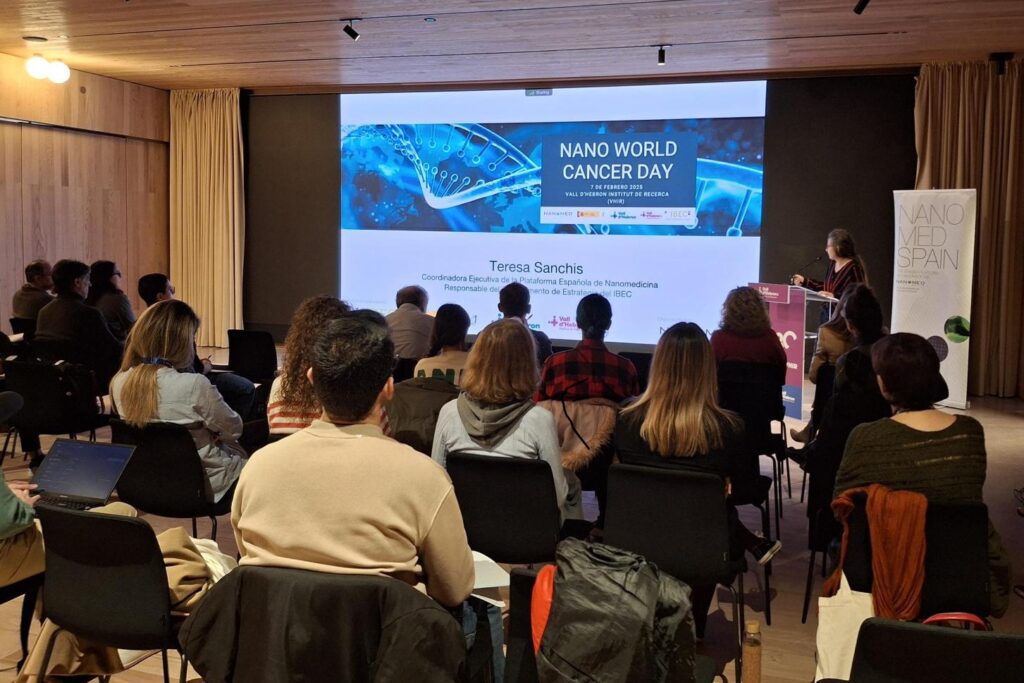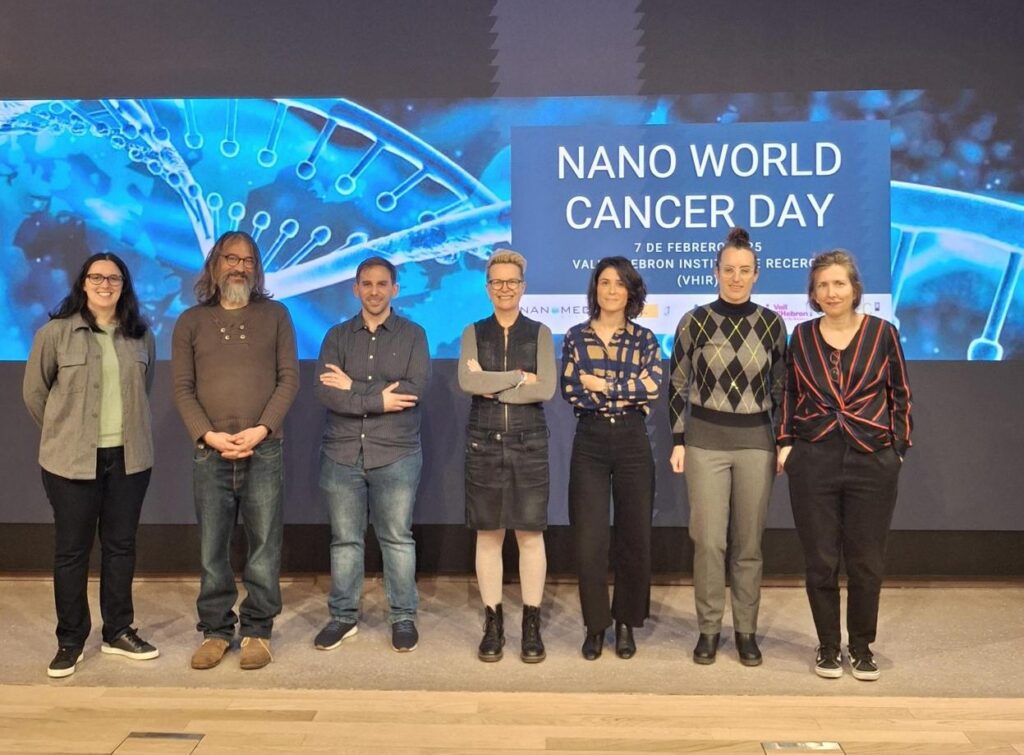On the occasion of World Cancer Day, celebrated on 4 February, more than 50 nanomedicine experts gathered today at the ‘Nano World Cancer Day’ event, held at the Vall d’Hebron Research Institute (VHIR). Participants presented the latest advances in nanomedicine applied to cancer and its impact on diagnosis and treatment.

Nano World Cancer Day is now in its 10th year and has become a national benchmark in nanomedicine applied to cancer treatment. The event is organised by the NANOMED Spain platform, coordinated by IBEC in collaboration with the Vall d’Hebron Institute of Research (VHIR).
One of the greatest challenges in medicine today is to find reliable diagnoses and effective treatments for different types of cancer. According to the WHO, the number of deaths due to this group of diseases reached almost 10 million in 2020 and could exceed 18 million in 2050. One of the scientific approaches working to reduce these numbers is nanomedicine, which aims to develop more personalised technologies by applying nanotechnology to fight diseases such as cancer from inside the body, at the cellular or molecular level.
In this context, the Nano World Cancer Day once again brought together leading experts in nanomedicine from both public research and private industry. Speakers presented the latest advances in nanomedicine applied to cancer, highlighting the role of innovative therapies based on nanotechnologies. Teresa Sanchis, Executive Coordinator of NANOMED Spain, and Begoña Benito, Director of VHIR, opened the event. Both spoke of the global challenge posed by cancer and the need for all institutional and social players to work together. Sanchis wanted to highlight the enormous potential of nanomedicine for the diagnosis and treatment of cancer, as illustrated by some of the cutting-edge projects being carried out by members of NANOMED Spain. Benito also highlighted the importance of collaboration between institutions and the common interest that VHIR, IBEC and NANOMED Spain have in nanomedicine and cancer research.
Researcher Fernanda Raquel Da Silva Andrade, head of the VHIR’s Clinical Biochemistry, Drug Delivery & Therapy (CB-DDT) research group, focused her presentation on the development of new therapeutic strategies based on nanotechnology for the treatment of glioblastoma.
Ivan Ramos, CEO of Polar NanoPharma, then highlighted the company’s mission to provide safer therapeutic options for oncology, specifically through a nanotechnology-based drug delivery and release platform. “Our technology allows for reduced toxicity, improved selective transport and controlled release of the drug to the affected tumour area,” Ramos said. He added that this method of drug encapsulation is versatile and can be used with a wide range of drugs without the need for chemical modification.
After a coffee networking break, Esther Vázquez, from the Applied Proteomics and Protein Engineering Department at the Institute of Biotechnology and Biomedicine of the Autonomous University of Barcelona (UAB), presented her research based on the development of biomaterials, mainly recombinant proteins, for application in different therapeutic situations, either as drug carriers or as therapeutic materials themselves.
Víctor Puntes, ICREA Research Professor and Head of the Nanoparticle Pharmacokinetics Research Group at VHIR and ICN2, focused his presentation on how the synthesis, conjugation and characterisation of inorganic gold and cerium nanoparticles and the study of their physicochemical properties can contribute to reducing toxicity and increasing the safety of treatments.
Finally, Sofia Cabezudo, Project Manager of the Spanish Association Against Cancer, closed the session by providing information on the funding opportunities offered by the Scientific Foundation. Cabezudo also highlighted that since 2017, the association has allocated 9.5 million euros to projects related to nanomedicine.

The conference reiterated the advances that nanomedicine is bringing to the health sector, opening up new possibilities for the diagnosis and treatment of cancer. It also highlighted that collaboration among researchers, entrepreneurs, oncologists and patients is essential if nanomedicine is to reach society as a real alternative to current approaches to cancer.





